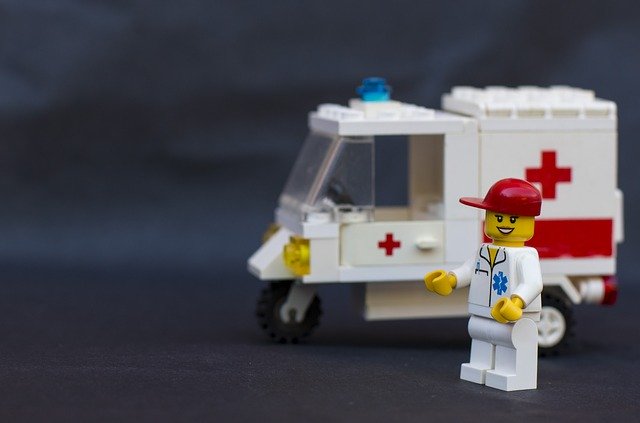Coaching for Well being and managing burnout – SDF Digest Follow up blog
Dr Magdalena Bak-Maier
I accepted the SDF invite to guest the Coaching for well being and managing burnout Twitter discussion with great excitement and curiosity. Making space for self-care is something I had to learn the hard way. As an “overachiever” I would habitually push my body to its limits in an effort to achieve results and win approval and love. While I got results and won approval, I also attracted pain. This was due to two main reasons: (1) fear and (2) lack of love. My burnout hurt my body and I realized that how I constructed my life brought avoidable suffering into my life. This created a massive impetus for change and ending unnecessary suffering become my mission. Today I make space for self-care where before it often didn’t get a seat at the table. That space is really about self-love: caring for my emotional, physical, mental and spiritual health Love of self is a recognition that unless we do that caring, no one else will and it’s not really their job. This is what I now see as an important mark of adulthood.
Our Twitter chat beautifully highlighted how familiar we all are with the signs of burnout as we experience is firsthand. Our bodies do not lie or spin things the way our minds can. This is why listening to our bodies is key and I have recently shared a powerful method for doing that. This method is called Body Talk. It’s also clear that burnout can be the end result of us living in fear of letting others down and while this applies to men and women, because of caring responsibilities, women do seem to have more tendencies to burnout. For example, gender differences occur particularly in the rates of common mental disorders – depression, anxiety and somatic complaints.[1] Considering that all humans will have a mother, burnout is a human welfare issue because when we are not well, our ability to care for others is not only diminished but can turn us into active harmers. Developmental neurobiology and psychology beautifully document the negative impact that lack of love and care has on brain development. As brains constantly reshape through a process known as neuroplasticity, and this process is key to mental agility, grit, resilience, and creativity, why would we think that depriving ourselves of vital care and love would help us become better performers.
Our second discussion question paints a picture of a world where being yourself and setting your own success measures has become rare. We desire to norm into acceptable standards of what is seen as good or where we can earn approval. More self-love and self-care is at the core of human dignity and if we can’t practice that for ourselves we will never give it to others or we will give it with resentment. My work on heart and mind connection began from the way I noticed people, myself included, would get into terrible pain and suffering because they forgot to listen to what their heart (voice of wise internal self-agency) told them. As an educator I found one comment in the discussion a very poignant point: what if we never learned to listen to our body?
Our third discussion question focused on practical tips to do better and what is clear from what people shared is that most of the best methods to keep us well are either free or inexpensive. The key challenge is to make space for them. In my experience this still requires external intervention of some sort. It could be a daily reminder calendar, a group of friends that report in, a coach or a loving friend/partner/colleague. It requires that we reconnect with others and with ourselves. This is why I created the Grid method. It makes space for self-care and invites the same achiever mindset to what is critically important for everything else we do and make.
Finally, when it comes to specific measures of health we could use to track progress (our final discussion question) I found it striking how few actual measures were mentioned. We seem to shy from evidence in the form of facts and this is our downfall. After experimenting with technology, I use a paper based journaling systems that I teach others. These have proved very effective. We simply keep record of how we feel, what our energy levels are and it’s free. What is key to this is the habit of doing it and that is what I help people train. I also recommend a yearly MOT. Grid method starts with this and it is something I practice on a yearly basis.
If a key cornerstone of how we will show up and the results we deliver comes from us feeling good, then taking care of self and also our careers are indispensable elements of effective work-life balance/integration and vital preventive method to avoid burnout.
Thank you to all contributors to this discussion and I look forward to sharing my Grid method with more people in the sector.
Links:
Learn more about the Grid method and start to take charge of your wellbeing today!
Join our Grid community on Facebook
https://www.facebook.com/groups/gridcommunity
[1] https://www.who.int/mental_health/prevention/genderwomen/en/
Blog author Dr Magdalena Bak-Maier, Neuroscientist, Productivity and wellbeing expert, Grid™ Inventor, Author, Top Performance Coach and Founder of Make Time Count. The Grid™ is a holistic tool that aids productivity and wellbeing. Magdalena raises awareness on the cost of burnout and how to prevent it through keynotes and works with individuals and organisations to teach the Grid™ approach across UK, EU and USA. As a consultant she assists leaders in creating empowered, healthy and vibrant workplaces that nurture healthy performers. Sign up for her monthly newsletter at www.maketimecount.com
